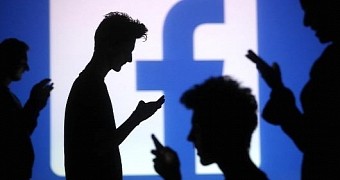Given Facebook's size as a network and the importance of the network in all our lives, it's not a big surprise that someone tried to use it to manipulate the masses. The company admitted that during the US election season malicious actors created fake personas to spread fake news on the platform.
In a new report, the social network's security team admits that the political debate during the US elections suffered quite a bit as a result of what Facebook called "information operations." The company even hints at the impact of Russian-sponsored cyber attack via Fancy Bear that ended in the release of private emails of Hillary Clinton and her top aides. While Russia's name isn't mentioned per-se, the company cites the investigation that found the country had ordered an influence campaign on the American presidential race.
This is quite far from the attitude Zuckerberg had back in November following Trump's victory when he scoffed at the idea that Facebook had determined the election's outcome, and that fake news had any part in it.
The reality of fake news
Now, Facebook admits that unidentified sources wanted to share information stolen from other sources, such as email accounts, with the intent of harming the reputation of specific political targets.
This data had been hosted on "dedicated sites," which may very well be Wikileaks.
These fake personas that were created on Facebook and elsewhere sought to amplify news accounts and direct people to the stolen data, while other fake accounts sought to "push narratives and themes that reinforced or expanded on some of the topics exposed from stolen data."
In recent months, Facebook has worked hard to fight against fake news. On top of adding filters to make such links end up on people's timelines, the company has been working hard to eliminate fake accounts that can be used to share these stories. Just recently, Facebook took down some 30,000 accounts that were trying to disseminate fake news in France, ahead of the presidential elections.

 14 DAY TRIAL //
14 DAY TRIAL //